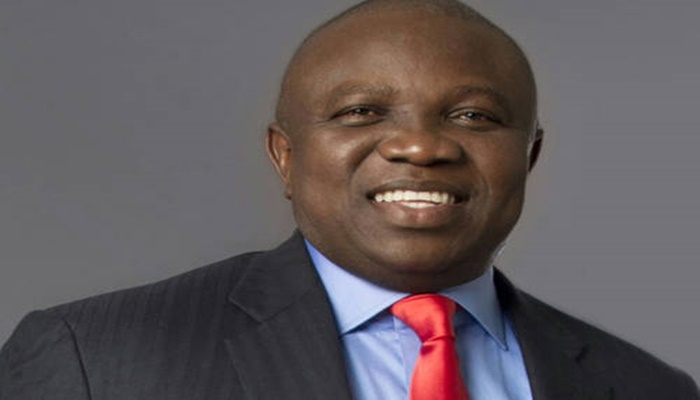
Fitch Ratings has affirmed Lagos State’s Long-Term Foreign and Local Currency Issuer Default Ratings (IDRs) at ‘B+’ with Stable Outlook and Short-Term Foreign Currency IDR at ‘B’.
According to the rating released on Friday, September 2nd, 2016, the National Long-Term Rating has also been affirmed ‘AA+ (nga)’, with Stable Outlook.
The affirmation reflects that Lagos is still weak going by socio-economic indicators by international standards. The ratings also reflect the state’s satisfactory debt metrics, Fitch’s expectations of continued robust operating performance over the medium term and Lagos’ improving accountability and transparency management compared with local standards. The Stable Outlook reflects that on Nigeria (B+/Stable).
Its performance due to a diversified revenue structure mitigating pressures from low oil prices, Lagos recorded in 2015 an operating margin of almost 51.5 per cent (in line with 2014’s), after a 5 per cent drop in operating revenue was offset by a 4 per cent cut to operating expenditure.
Fitch expects operating revenue, mainly driven by the service and tertiary sectors, to grow about 10 per cent in the medium term towards N415 billion (N378 billion in 2015). Net internally generated revenues (IGRs, excluding fees and fine and other operating revenue) will average N310 billion over the medium term, continuing to dominate 75 per cent-80 per cent of total revenue (70 per cent in 2012).
This, combined with the commitment of the administration to continue streamlining its operating cost structure (including increased efficiency of cash management by limiting the use of commercial banks to three names), should stabilise the operating margin at the current level over the medium term. The agency explains.
After a 20 per cent drop in 2015 capex as almost half of the year was dedicated to promoting elections, Fitch expects the resulting political continuity will normalise capex back towards N250 billion per year over the medium term, mostly focused on transport, water, health, education and social protection.
“We expect management’s efforts to improve transparency and accountability, together with a larger recourse to public-private partnerships, will attract foreign investments and, ultimately, sustain the state’s revenue.
“These measures, together with the boost from the land use charge, have led the current administration to estimate comfortable overall monthly IGRs of N30 billion, a level considered by local administrators as necessary to run the affairs of the state.
On the issue of debt and liquidity “We forecast Lagos’ debt at above N500 billion to N550 billion over the medium term, net of repayment provisions, or almost 1x the budget size (nearly N615 billion at end-2015).
Being largely made up of bonds and external loans (80 per cent of total), debt may suffer from the Naira devaluation, although the risk of repayment concentration will be compressed by the longer maturity of Lagos’ debt (10 years versus previous seven years).
Following recent debt renegotiation, which reduced the debt burden to a monthly average interest rate of 12 per cent (from 18 per cent) with savings of almost N4 billion, Fitch expects debt sustainability to remain sound, with a payback (debt-to-current balance) of three years and debt service coverage below 30 per cent over the next couple of years.
According to the re[port, liquidity should not be a risk, as it averages N100 billion over the medium term and equivalent to approximately 1x annual debt service requirements. Economy despite its weak socio-economic indicators by international standards, Lagos is considered Nigeria’s economic powerhouse as its local GDP accounts for 20 per cent -25 per cent of national GDP.
According to the 2015 GDP breakdown, service, construction, transport and industry make up 90 per cent of the local economy, underpinning the state’s diversified economy, therefore easing the reliance on oil-related activities.
These mitigate the risks stemming from potential fiscal pressures as a result of the central government’s responses to low oil prices; inflation; and the continued weakness of the local currency. Fitch believes that Lagos’ socio-economic indicators will further improve as local GDP growth, which we estimate at 4.5 per cent to 5.5 per cent in 2016-2017, is likely to outperform national real GDP growth.







Comments are closed.